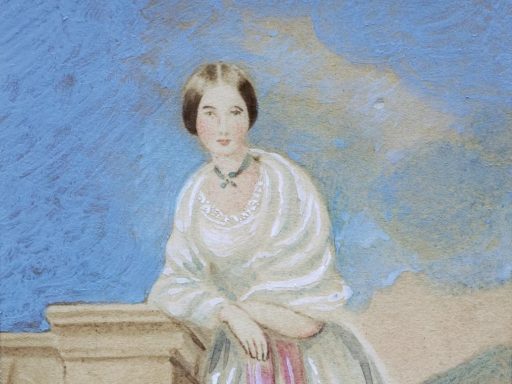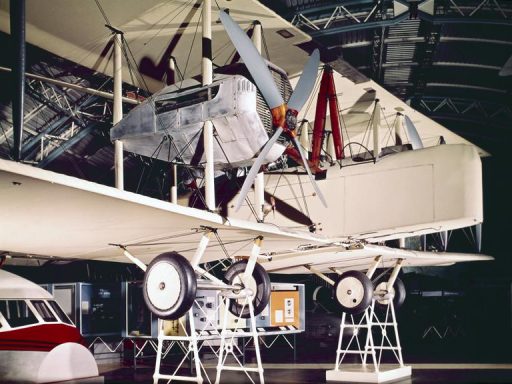Like most curators, I’m always on the look-out for interesting stories and things that capture public interest. So it won’t be much of a surprise to find I’ve been watching and reading Call the Midwife by Jennifer Worth. Call the Midwife chronicles the work of the author as a midwife in the East End of London in the 1950s. As you would expect we have a large collection of objects relating to midwifery and obstetrics. The piece of kit that caught […]
Happy 2012 to everyone! The New Year Honours List has been announced and some will be starting off 2012 with new titles or new letters after their names. A number of scientists and medical researchers were honoured this year. Unsurprisingly the Science Museum’s medical collection has its fair share of sirs and dames as well as OBEs and Orders of Merit. Arthur Weston made a number of artificial prostheses while imprisoned in Stalag VIIIB/344 (Lamsdorf) during the Second World War. […]
100 years ago today, Marie Curie was awarded the Nobel Prize in Chemistry, becoming the first person to win two Nobel Prizes. The citation recognised ‘the discovery of the elements radium and polonium … the isolation of radium and the study of the nature and compounds of this remarkable element’. Isolating radium from pitchblende was a laborious process, with a ton of ore yielding only a tenth of a gram of the new substance. In the early 20th century radium […]
In the Wellcome medical collections, there are lots of relics relating to famous people, some of which have featured on this blog. Many of them are from the great men of medicine and science, Joseph Lister, Louis Pasteur, as well as military and naval men, Nelson, Napoleon and Wellington. In the Wellcome Library, only one woman’s name made the inscription in the Reading Room: Florence Nightingale. Not so with the collections though. During one visit to the stores I came across […]
“We have also sound-houses, where we practise and demonstrate all sounds, and their generation. We have harmonies which you have not, of quarter-sounds, and lesser slides of sounds. Divers instruments of music likewise to you unknown, some sweeter than any you have, together with bells and rings that are dainty and sweet…” Daphne Oram, founder of the BBC Radiophonic Workshop, returned time and again to this quotation from Francis Bacon’s 17th century fantasy, The New Atlantis. Now, with help from […]
Continuing our Women’s History Month theme, today we’re celebrating International Women’s Day. As the theme for 2011 is ‘equal access to education, training and science and technology’, it seems like a good day to celebrate Kathleen Lonsdale, who in 1945 became the first woman to be elected a Fellow of the Royal Society, along with microbiologist Marjory Stephenson (only 285 years after the men). Lonsdale was a pioneer in the field of X-ray crystallography, in which scientists fire X-rays at […]
March is National Women’s History Month. To coincide with the centenary of the Nobel Prizes, it seems an ideal time to look at the achievements of Marie Curie (1897-1934). Marie Curie was the first scientist to win two Nobel Prizes – one in 1903 with her husband Pierre and the another in 1911 for Chemistry for her work on radioactivity. Like many of the objects Marie Curie used in her work, this flask has slight traces of radioactivity and needs to be […]
Today in 1839, John Herschel made the first photograph on glass. The plate, with the image now faded almost beyond recognition, is in the care of our colleagues at the National Media Museum. The image was of the 40ft telescope built by John’s father William, something of a tourist attraction due to its size. By the time this photograph was taken only the telescope support frame remained, with the tube already removed – the structure had begun to rot after […]

Selina Hurley explores the life and work of Florence Nightingale, the Lady with the Lamp.
On Tuesday I attended our annual ‘Fellows of the Science Museum’ reception, in which we recognise the contributions of leading scientists and educators. This year we were particularly celebrating female scientists, with a speech from new Fellow Jocelyn Bell Burnell. In 1967, Jocelyn was a PhD student at the Mullard Radio Astronomy Observatory in Cambridge. Her job was to analyse data from one of the telescopes for the characteristic twinkling of quasars. One day she noticed a ‘bit of scruff’ on the telescope’s […]
Caroline Herschel was the first professional female astronomer. We explore more about her immense contributions to astronomy.

Transport Curator David Rooney considers the concept of slowing down and how this doesn’t equate to wasting time.